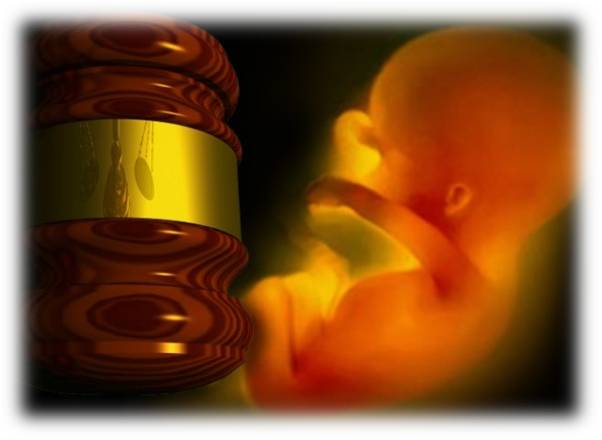In a judgement released this morning, Canada’s top court dismissed an appeal from Ivana Levkovic and ordered a new trial.
Levkovic was charged after a building superintendent found a badly decomposed body f a newborn baby in her apartment. Levkovic later told police that she had fallen, went into labour, and then put the dead body of the baby girl in a plastic bag and left it on the balcony.
 On October 10, 2012, the Supreme Court of Canada heard Ms. Levkovic’s case and in a number of the exchanges between Ms. Levkovic’s lawyer, Jill Copeland and the Supreme Court Justices, there was a blatant refusal to use the term “child.” At one point Chief Justice Beverley McLachlin stumbled as to what to call Ms. Levkovic’s baby and resorted to the term “object.”
On October 10, 2012, the Supreme Court of Canada heard Ms. Levkovic’s case and in a number of the exchanges between Ms. Levkovic’s lawyer, Jill Copeland and the Supreme Court Justices, there was a blatant refusal to use the term “child.” At one point Chief Justice Beverley McLachlin stumbled as to what to call Ms. Levkovic’s baby and resorted to the term “object.”
The new judgement, delivered by Justice Fish, notes in paragraph 13, “Any ambiguity as to this element of the offence is resolved in favour of the accused, as it must be, by restricting the pre-birth application of s. 243 to the delivery of a child that would likely have been born alive. By this I mean, here and throughout, a child that has reached a stage of development where, but for some external event or circumstances, it would likely have been born alive.” (emphasis Fish)
WeNeedaLAW.ca campaign director, Mike Schouten responded to the decision today in a statement to LifeNews.
“We are pleased with the Supreme Court of Canada’s decision, but at the same time appreciate the difficulty they have in navigating cases involving children at the early stages of life,” he said.
He said Levkovic was charged under s. 243 of the Criminal Code, which outlaws the concealing of the body of a dead child regardless of whether the “child died before, during or after birth.” But the word “child” is not defined in the Criminal Code, and the original trial judge could not come up with a clear definition for the term in cases where a death occurs before birth.
“Does the term child then include a human fetus? Or only a late-term, more fully developed fetus?” asked Schouten. “Does it matter how old the fetus is before birth or how likely it will survive after birth?”
CLICK LIKE IF YOU’RE PRO-LIFE!
“The lack of clarity in the Criminal Code regarding the status of the pre-born child is what allows for an increasingly careless attitude towards newly born children,” continued Schouten. “The legal quagmire is a result of negligence on the part of Parliament. The Supreme Court when it struck down Canada’s abortion law in R. v. Morgentaler (1988) clearly did not envision the legal vacuum which has existed for twenty-five years. In fact, they instructed Parliament to enact new legislation protecting the rights of the pre-born child.”
“Canada affords no protection to pre-born children at any stage prior to birth, let alone when they are ‘likely to be born alive’ and it is time Parliament had the courage to enact legislation that recognized the rights of pre-born children at some stage during the pregnancy,” concluded Schouten.







